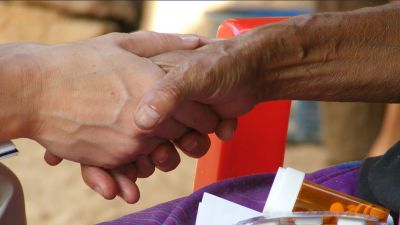
B.A. Behavioral Science/Sociology
Behavioral science is a social science that focuses on society, human social behavior, patterns of social relationships, social interaction and aspects of culture associated with everyday life.
With a degree in behavioral science, you might choose one of two paths after graduation: neural decision science or social communication science.
- Neural decision science includes cognitive theory, social psychology, management science and other studies that determine how the brain works.
- Social communication science discipline includes organizational behavior, anthropology and studies of social networks; basically, the study of how humans interact with each other.
Whatever type of behavioral science you’re interested in, Concordia University, Nebraska can help give you the knowledge and skills you need to find a career after graduation or continue in graduate or professional school to further hone your expertise in the field of behavioral science.
Explore human behavior and social interaction!
Program Highlights
WHY STUDY BEHAVIORAL SCIENCE AT CONCORDIA?
The behavioral science program at Concordia University, Nebraska seeks to teach students to understand human behavior and relationships through critical thinking, research and experiential learning. Our students will serve and inspire others and fulfill God’s call to live lives of learning, service and leadership in the church and world.
In Concordia’s behavioral science program, you will study a combination of sociology, psychology and other social sciences to examine complex problems of human interaction and behavior. With this degree, you will gain skills that can be applied in many professions that require an understanding of people and their interactions from individual, group and societal levels.
Internships
Behavioral science students often participate in internships, which is just one of the ways Concordia helps prepare you for your chosen career. Whether you want to become a counselor, social worker, researcher or law enforcement officer, you will receive the hands-on training you need to be successful.
Students at Concordia Nebraska are also encouraged to participate in a study abroad experience, which may be a study tour or exchange program to places like England, Italy or China, or which might include overseas internships with universities or businesses with a behavioral science emphasis. Concordia will help you find internships that fit your own individual interests and future goals.
MEET OUR EXPERT FACULTY
As experts in behavioral science and sociology, our faculty and instructors bring years of experience to the classroom.
Meet our students
“I’m currently looking at trauma-informed therapy for kids in the foster care system. The goal is to help kids who have gone through trauma to live lives as normal as possible. ”
Kathryn Potter
Wilcox, NE
Accreditation
Concordia University, Nebraska is accredited by the Higher Learning Commission, a regional accreditation agency recognized by the U.S. Department of Education.
Degree Goals
A behavioral science graduate from Concordia University, Nebraska will be able to:
- Understand the field of behavioral science as a whole, finding vocational direction and learning to serve society and people.
- Discover and employ proper ethical boundaries in their behavioral science career.
- Put a personal face to social problems and social issues in our society.
- Have opportunities to serve and learn in local, national and global behavioral science organizations so that they can learn skills from the field as it applies to everyday life.
Human and Social Sciences Minors
- Criminal Justice
- Gerontology
- Pre-Law
- Psychology
- Sociology
Career Outcomes
Human Resource Specialist
- Oversee employee relations, educational job training and handling compensation and benefits for employees
- Fill employment positions, conduct new employee orientation and work with current employees
Social Service Specialist
- Plan and coordinate activities for community outreach programs, government agencies or healthcare facilities
- Provide physical and psycho-social care to individuals with developmental disabilities or organize community youth activities such as drug prevention programs
Social Worker
- Help people with a broad range of issues, whether they be psychological, financial, health-related or substance abuse-related
- Utilize social theories to understand human problems, help improve people’s lives and improve society as a whole
FAQs
What can you do with a behavioral science degree?
Because behavioral science is the study of human interaction and how the human brain works, there are many different types of career fields that are available to people who have a degree in behavioral science. With a bachelor’s degree in behavioral science from Concordia Nebraska, you will be well-prepared for many different paths so you can pursue your own unique passion. You might choose a career in human resources, customer service, law enforcement, consumer science, mental health science or education.
What is the difference between psychology and behavioral science?
Behavioral science and psychology are closely related fields. The goal of both behavioral science and psychology is to better understand human behavior. Psychology is the scientific study of the mind and behavior. Psychologists are actively involved in studying and understanding mental processes, brain functions and behavior.
In contrast, behavioral science is more focused on behavior: relationships between people or animals and the things that cause them to react and behave the way they do. A behavioral scientist might also be interested in what a person does in a certain situation, time or context.
What experiences will I have outside the classroom in the behavioral science program at Concordia?
At Concordia Nebraska, the focus of our behavioral science program is on experiential, hands-on learning. We want you to take the concepts you are learning in the classroom and apply them immediately to real-world situations, so you can expand your knowledge and push yourself to a new level.
Part of earning your behavioral science degree will include a service-learning component. Some classes work with the Nebraska State Penitentiary and Lancaster county jail, attending worship services with inmates, participating in self-betterment clubs and helping to teach job skills and resume building through a program called Released and Restored. Some classes develop their behavioral science skills by working with local nursing homes, foster friends organizations or with Court Appointed Special Advocates (CASA) in Seward.
Do I need a graduate degree to find a job in behavioral science?
Whether or not you’ll need to continue your education in behavioral science will depend on what kind of career you are hoping to find. For many careers, a bachelor’s degree will be enough. Market researchers, behavioral scientists and human resources managers also typically only need to acquire a bachelor’s degree in behavioral science.
If you wish to work in certain psychology or public health related fields, you may need to continue your studies and earn a masters or doctoral degree in behavioral science. You will conduct research and take classes to help you specialize in certain areas of behavioral science, such as epidemiology (the study of diseases), anthropology (the study of character, geography and social structure of certain groups of people), or criminology (anticipating crime by analyzing patterns of crime rates based on demographics, economics and geography).
Related Programs

Psychology
The bachelor’s degree in psychology at Concordia is ideal for students seeking a strong theoretical foundation in the field of psychology. Offering a diverse psychology curriculum, Concordia Nebraska’s psychology professors use approaches that range from the scientific to philosophical and the experimental to the theoretical.

Pre-Social Work
Concordia University, Nebraska’s pre-social work program is designed to prepare you for success in graduate school and your eventual career in social work

Art Therapy
The art therapy program at Concordia, the only one of its kind in Nebraska, will prepare you to serve in the health field through your art. A degree in art therapy provides you with a quality foundation for you to use your creative process to help people of all ages improve their health and emotional well-being. With your art therapy degree, you can work in schools, nursing homes, prisons, hospitals, recreation facilities, mental health hospitals and nonprofit agencies.
1 Recent graduates attending graduate school or employed within six months of graduation.
2Average Class Size for Representative Subject Most Aligned with Major, Over Last 5 Years.